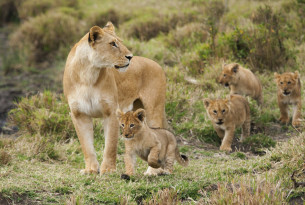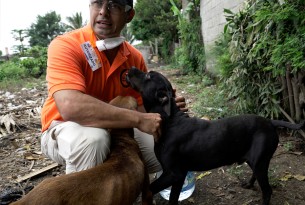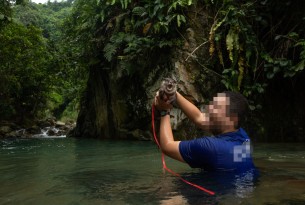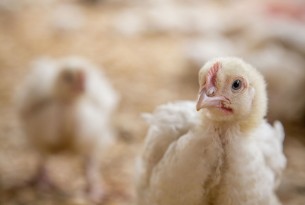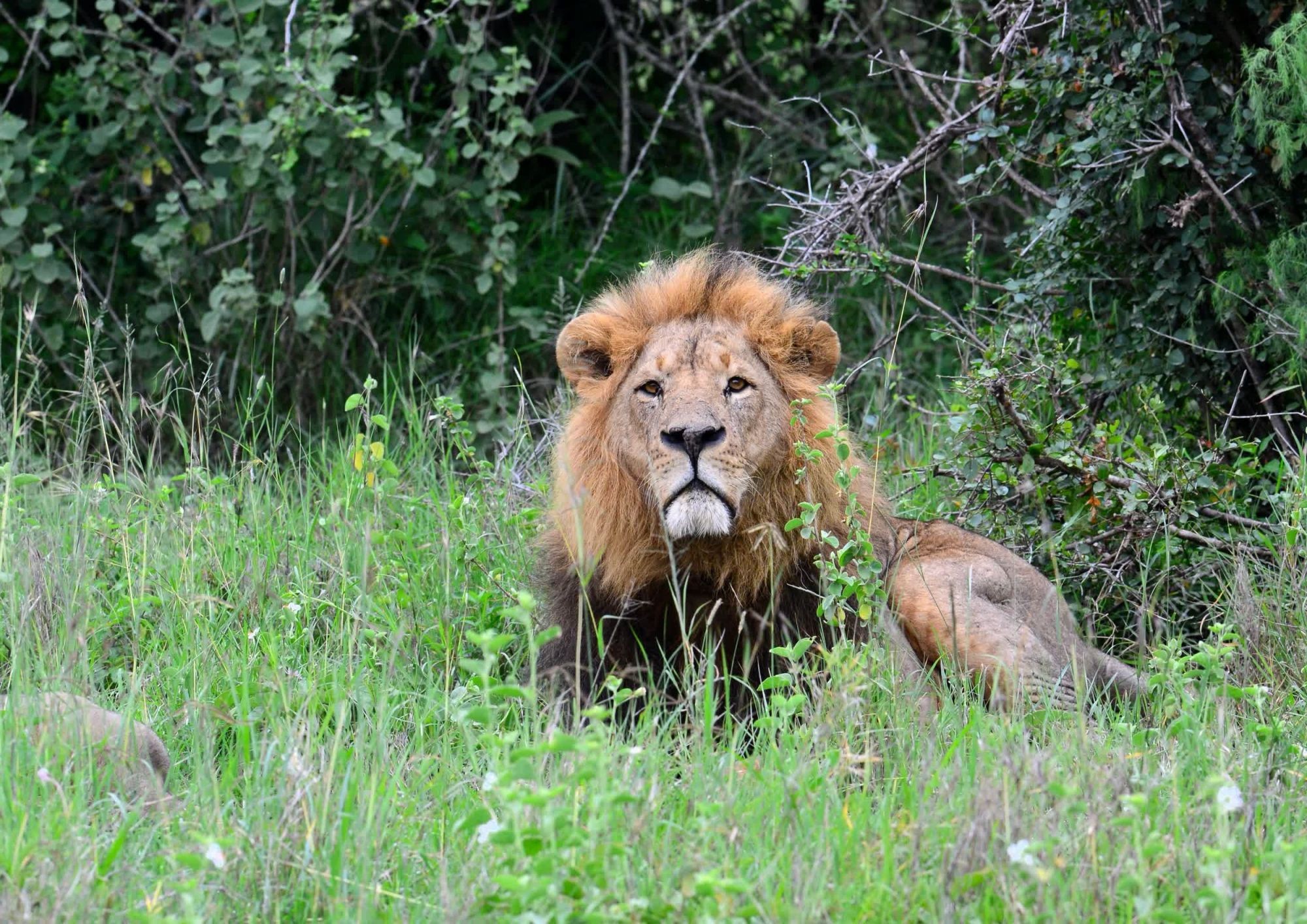
Lions and tigers being farmed for traditional medicine
The demand for traditional medicine is fuelling a boom in big cat farms in South Africa and Asia. Our investigation exposes the cruelty lions and tigers face
We examined the supply chain feeding the insatiable demand for big cat products in Asia and found horrific cruelty in every corner. Read the executive summary of our report here.
Suffering at every step
Before they’re killed, and their body parts are used in traditional medicine, these wild animals are subjected to various forms of cruelty.
In China, huge, industrial-style big cat farms have row upon row of tiny cells, each housing a miserable lion or tiger. These facilities provide only the minimum requirements for the cats to survive, such as food and water.

A facility in China which houses around 280 big cats in cages.
At big cat farms in South Africa, lion and tiger cubs are born into a life of exploitation. Some are snatched from their mothers in the wild, while most are conceived at speed breeding facilities. In South Africa, the cats often start their lives on petting farms, where they’re used as entertainment for paying visitors.
Juvenile lions are often also used for ‘walking with lions’ tourist experiences.
Their lives then take a deadly turn as they are moved to game farms for canned hunting. Skins and heads are taken as trophies, and bones are legally exported as part of the ‘skeleton quota’, which is unique to South Africa.
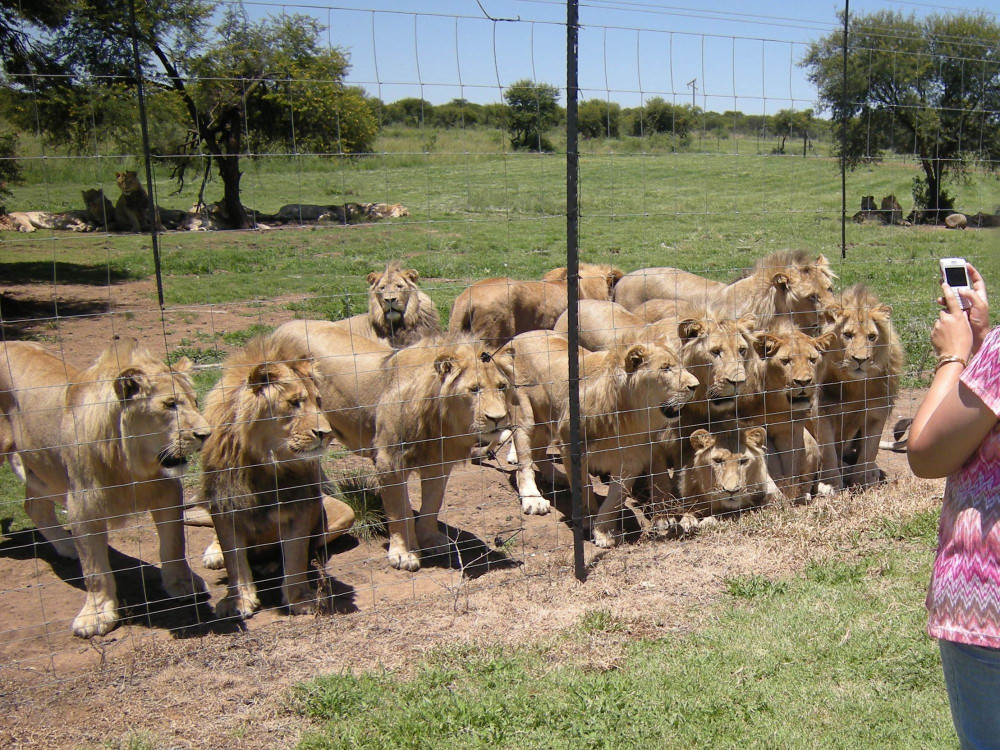
Image: Anonymous, Blood Lions. Male lions at a South African tourist venue.
Unnatural breeding
Due to inbreeding, many lion and tiger cubs at these facilities are born with deformities such as missing limbs. Some are even still-born.
Many female tigers are subjected to speed breeding, producing four or five more litters than they would in the wild.
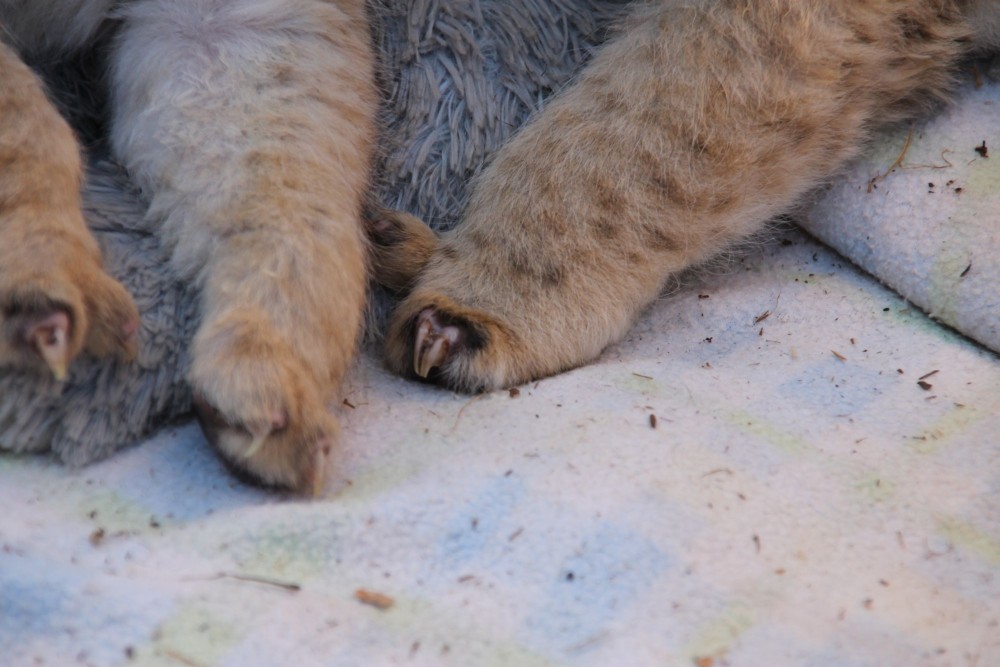
Image: Anonymous, Blood Lions. Lion cubs born with deformed paws through captive in-breeding at unscrupulous facilities.
Awful conditions
In China’s big cat facilities, which resemble factory farms, tigers are kept in cages measuring approximately 4x7 metres. In the wild, these tigers would have a 7-100-kilometre territory to roam.
When subjected to the unnatural conditions present at farms in both China and South Africa, tigers and lions often perform abnormal behaviours due to poor welfare. This includes pacing back and forth for hours and biting their own limbs and tails.
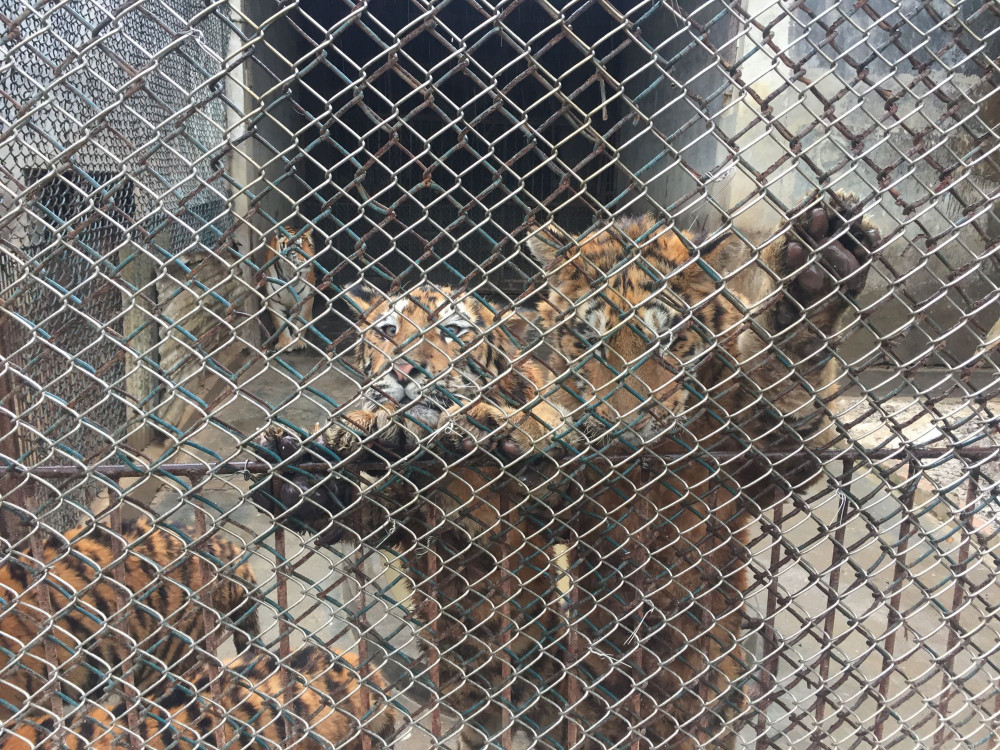
Our global wildlife and veterinary advisor Dr Jan Schmidt-Burbach said: “Does the life of an animal mean nothing at all? These big cats are exploited for greed and money, and they suffer immensely at each stage of their lives. Many of these animals will only ever see the world through metal bars; they will only ever feel hard concrete beneath their paws.”
Attitudes towards traditional medicine
- In Vietnam, almost nine out of 10 people (89%) believe in bogus medical products made from tigers and lions
- Of those that consume these products in Vietnam, eight out of 10 people (84%) prefer big cat products from animals caught in the wild rather than farmed
- In China, two out of five people (40%) surveyed had used drugs or health products containing big cat products
- Over half (55%) of Chinese consumers preferred their big cat products to be sourced from the wild
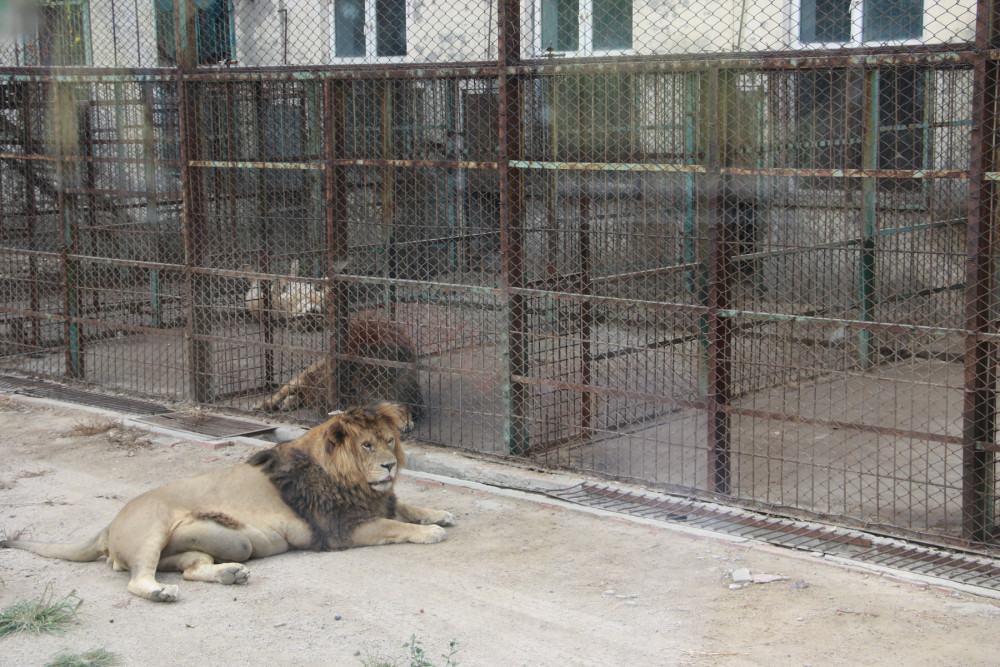
While the consumer attitudes research shows some worrying trends, there are also some promising results.
67% of Vietnamese respondents were willing to try herbal or synthetic alternatives to big cat products, with over half (51%), saying that this was dependent on whether it was reasonably priced.
Ending cruel traditional medicine
We’re working to shift attitudes and make it socially unacceptable to purchase and use traditional Asian medicine containing big cat body parts and derivatives. Click here to read our full report, "Trading cruelty - how captive big cat farming fuels the traditional Asian medicine industry."
Sign up to our newsletter to find out how you can help end this cruelty over the next few months.



